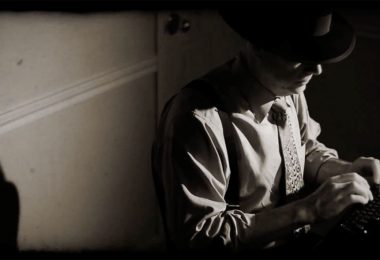
Be it, ByomkeshBakshi or Sherlock Holmes, our childhood fascination with detectives seemed to know no bounds and many are still affected by it.The secretive aura, sharp senses, unfailingly functional intellect and poised personality, all of these make detectives among the most fascinating and mind-tickling persons in the world.
Of course, all our excitement has now been accentuated by the rise in detective-inspired entertainment which invokes in the minds of almost of all us a super cool imagery of a detective within ourselves. The point is: if you are still unable to withdraw yourself from the detective magic and are looking for clues, this article will help you a great deal.
You can be a detective, and an appropriate way to do that is through freelancing. Through freelancing, you will not only be what you always wanted to be—a detective—but also a successful freelancer. Both together will give you identity and money. So, how to become one? Well, all you need to do is read letter by letter whatever that follows hereafter. These four key factors are to be read and studied carefully before embarking on a journey to becoming a freelance detective.
1. Freelance Detective Job Requirements
This is the first and foremost question you should ask yourself when planning to become a freelance detective. While it is not necessary to have a professional qualification to become a detective, there are a considerable number of certification courses which potential detectives may opt for. The advantage of enrolling in these courses is that they will give your more credibility, apart from theoretical and practical knowledge of various aspects of the investigation. To know more about the same, read below:
- Training is integral to the task of becoming a full-fledged detective. Such training is offered by a number of recognized institutions, which offer paid training. You are likely to secure a traineeship with an independent private investigator or a company.
- There is a range of courses available which can help you sharpen skills. These courses are offered by the Indian Detective Institute, which provides a ten-day foundation course in the field of investigation as well as a thirty-day Professional course on Private The institute also conducts a Diploma course in Private Investigation, which is open to everyone.
- Going beyond India, there are plenty of institutions offering courses in a private investigation such as University of Washington, Boston University, California State University, etc. The courses are reputed, but they will require you expenditure of a good sum of money.
- But, remember this, training is indispensable, and therefore, you are supposed to enroll in training programs before actually starting out as a freelance detective. Examples of some institutes include Central Detective Training School, Detective Training Institute, Academy of Investigation and Intelligence Management, etc. Once you have adequate educational qualifications and training, you can step outside as the kind of detective you always wanted to be
2. Freelance Detective Skills
This goes without saying that not everybody can become a detective. Then, who can? Only those who possess the following skills:
- Problem-solving and critical thinking: Without the knack for problem-solving, you cannot become a detective—you will only be a sham. Problem-solving is an indispensable quality in detectives, who are required to analyze complicated problems and find apposite They must be able to reach reasonable conclusions on the basis of evidence collected.
- Neutral approach: It is extremely important on the part of a detective to follow an impersonal approach towards a problem. He/she must keep aside personal prejudices and handle the issue with a scientific temperament. A detective who takes up a case out of personal reasons will find himself/herself drawn into the world of prejudices and judgmental notions.
- An eye for detail: Investigations may take days, months or even years to finish; however, you cannot relax and be picky with details. You must pay a thorough attention to whatever matter you come across during investigation. Such attentiveness eventually helps during police investigations and legal proceedings for example, in the examination of the witness.
- Tech-savvy: In this age of digitalization, you cannot lag behind in the knowledge of computers and technology. Computers are usually employed for conducting background checks and sifting through important records such as financial accounts of the accused. Detectives must know when and where a particular technology can be of help in the case. For example, you may study the increasing crime rate in a particular region from official records available at the National Crime Records Bureau.
- Communication Skills: Detectives are required to make comprehensive and coherent reports on the investigation and routinely submit them to the clients or immediate seniors or courts. You must possess exemplary oral communication skills as well since they will be of great assistance during interviews. While interviewing, the detective must pay keen attention to everything said and look out for loopholes in the story; he/she must also study the body language of the interviewee.
Your communication skills play a key role during legal proceedings in which you might be called to testify—there your communication must be unambiguous and to-the-point. - Physical and mental health: As detectives, you may come across adverse situations such as extreme cold or late night surveillance and required to nevertheless continue working. In order to ensure greater productivity, you must maintain a healthy brain and body. Your client may ask you to keep a 24×7 watch on the suspect, and your health should not be a bottleneck.
- Connections: Detectives are famous for their connections. If you wish to become a detective, you must create and maintain strong and reliable connections such as with the police enforcement, lawyers, other detectives and even former criminals. These individuals help a great deal in finding information, especially of an unknown suspect or a highly popular but secretive suspect. With a bag loaded with connections, your eyes will be everywhere.
3. Where Can A Freelance Detective Work?
There are a number of employment opportunities for freelance detectives, and a few of them have been mentioned below:
- There are a number of detective agencies in the country and beyond which offer employment opportunities to freelance detectives.
- You can work with the state’s law enforcement agencies by routinely providing them with work. In reality, this is a commonly known fact that police officers often hire freelance detectives to look into critical areas of investigations and report to them.
- Join Academia! What can be better than teaching to potential detectives? Detective training institutes are on the rise and this elevates income generating options for you.
- You can start a private detective agency, and provide services to others. You will have greater independence in the matters relating to clients, logistics and all.
- To explore more opportunities, there are a number of freelance websites that are regularly updated, and act as relatively authentic sources of information. These websites require the creation of an account, a portfolio of skills and submission of application—it is as simple as that. You will have to sift through the vacancies and apply to the one that suits you the most. A few of these websites include freelance.com, worknhire.com, upwork.com, and guru.com.
- To know more, you may join various detective associations such as Fox Investigations, Association of Private Detectives and Investigators, National Association of Legal Investigators, World Association of Professional Investigators, etc.
4. Freelance Detective Pay Rate
The answer to this question will depend on a number of factors such as qualifications, skills, experience, etc. You can earn as much as $21 per hour and beyond, but for that to happen you will have to show credibility through skills and experience. Young detectives usually start low, and take a while to climb up on the pay scale; but once they do, they become super rich with both money and work.




